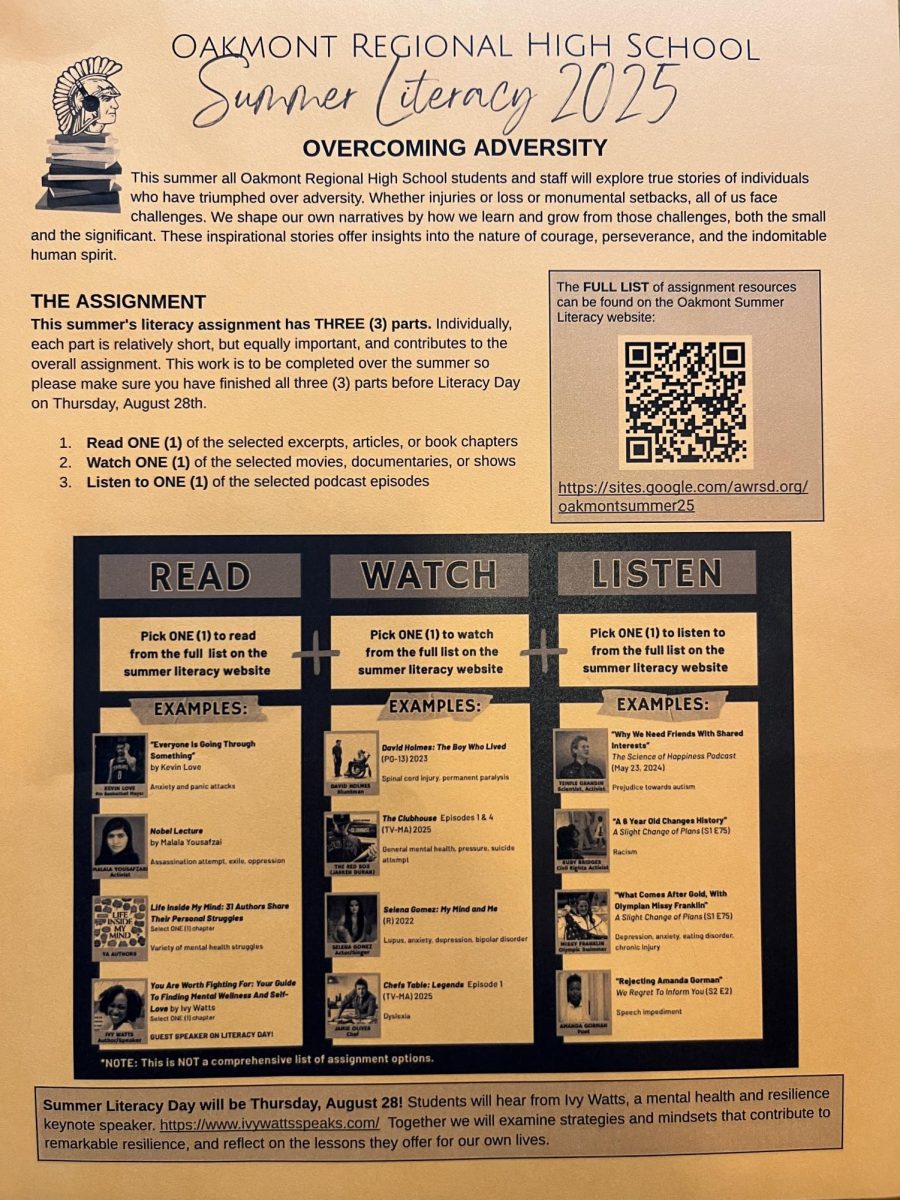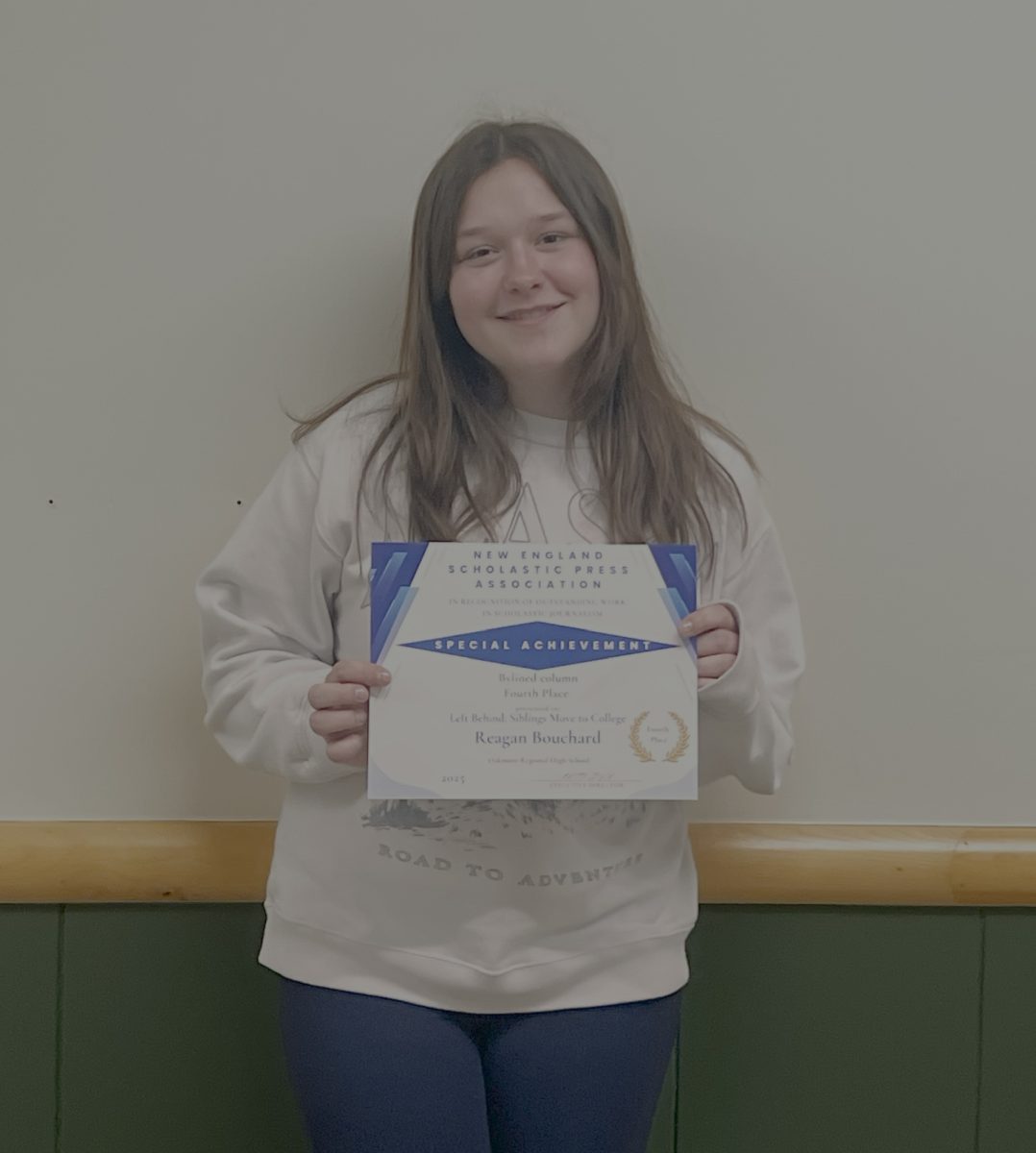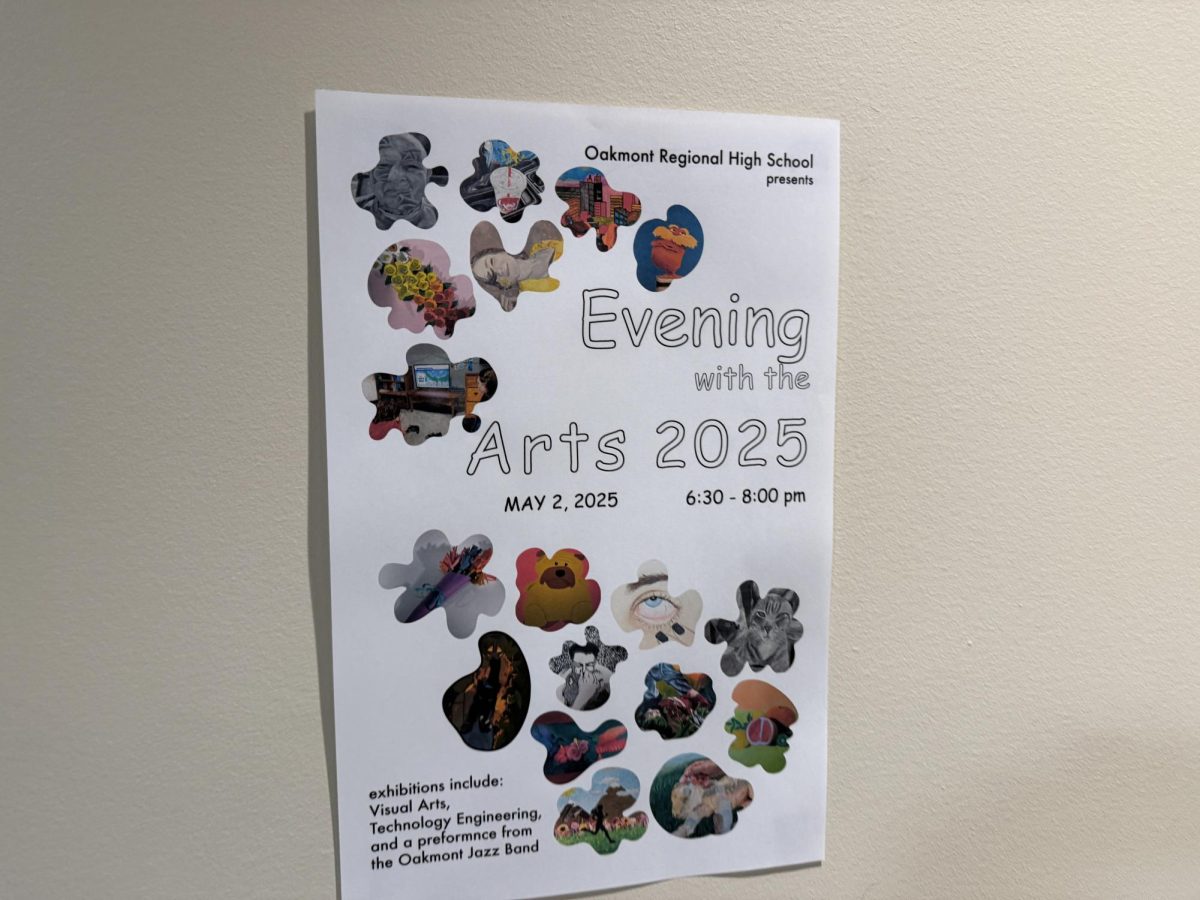What foreign language should I learn? This is a common question rushing through students’ minds as they enter high school. In order to graduate at most schools, students must meet a foreign language requirement, forcing them to choose a new language to learn. While some schools offer several languages, many focus on the main options of French and Spanish. When making the decision between the languages, thousands of questions come into consideration. Which language will I use more in life? Which language is easier to learn? Which language will benefit me the most?
Both languages have their own advantages, so this is an extremely tough choice to make. However, many students tend to quickly choose Spanish and do not realize the full benefits of French. According to Madame Klein, the French teacher at Oakmont Regional High School, “Spanish definitely has a benefit in the sense that a lot of Americans speak Spanish, so if you are not interested in international travel or you are not looking for a job that would require French, Spanish is a great option.” Many students consider their personal goals and believe that Spanish will be more useful in their lives. If you are interested in traveling to places where the language is often spoken or if you hope to one day have a career that could involve the language, Spanish would be useful to know.
Others choose to learn Spanish with the hopes of being in the same classes as their friends. Many also want to build on their prior knowledge of the language. When asked about whether or not the choice between French and Spanish was difficult, Oakmont junior Maggie Hubbard said, “Yes, it was a tough choice because a lot of my friends were taking Spanish and I wanted to be with them. I knew I wanted to take French in the end, but I knew I would have to do it alone.”
The aspect of learning the language with your friends is important to many people, but it is even more important to choose the right language for you and your life. While Spanish is extremely beneficial, there are also an abundance of reasons to learn French.
First of all, French is found all over the world. According to Renaissance Translations, “The French language is a global language with around 77 million native French speakers and 300 million when counting second language speakers.” Anywhere you go in the world, you can find a way to apply your knowledge of French. Since it is one of the most spoken languages of the world, learning French can be helpful, especially if you are interested in travel or careers with international communication.
For many students, travel aspirations play a big part in the decision between languages. Oakmont sophomore Finley Catlin said, “I have always wanted to go to Europe, so I thought that French would be more useful.” While French is found on every continent, it is an official language of 29 countries. Some of the major countries include France, Belgium, and Switzerland. Also, many of the other nations are located in Africa. Additionally, Canada is home to millions of French speakers. If you dream of traveling to any of these places, French might be the language for you.
In addition, French is an elegant language to speak. Once you feel comfortable with your pronunciation skills, speaking French can be really enjoyable. When asked about her personal favorite aspect of the French Language, Klein responded, “I love the way it feels when you speak it. It kind of just flows.” Many French speakers and learners agree with this statement.
While the language is challenging with a lot of similar sounds and words, these similarities give French a special rhythm when it is being spoken. American writer and humorist Mark Twain said, “It has always been a marvel to me – that French Language; it has always been a puzzle to me. How beautiful that language is! How expressive it seems to be! How full of grace it is!” Many people find the language confusing, yet fascinating.
Another aspect of languages that people consider is how challenging a language is to learn. When people think of French, they often think that it is difficult to learn because of its complexity and grammar rules. However, they do not know that the basics of French helped inspire some elements of the English language. This means that people already understand a lot about French due to the similarities in the words. Therefore, it is not as challenging as you might think. Also, if you have a good method of learning, French can be fun to learn.
Specifically at Oakmont, Klein structures the French curriculum to fit her own personal style of teaching. She groups vocabulary to help students understand the possible situations the specific words can come in handy. When asked about her style of teaching Klein said, “I go through mostly thematic curricula meaning I teach different vocabulary topics and we build on the skills as we progress through different units.” Each level of French expands on the prior levels and dives deeper into the language.
Additionally, the classes focus on many different approaches to learning and studying to help all students. According to Jocelyn Cleaves, an Oakmont sophomore, “Madame Klein makes class have a balanced mix of games, vocab and projects.” The different aspects of class make the vocab easier to understand and the class extremely fun.
Klein is also clearly passionate about the language, making it more exciting to learn. Many students find that Klein’s teaching style matches the way they like to learn, so if you attend Oakmont and this teaching style appeals to you, French might be the perfect fit for you. Also, if you are interested in fully immersing yourself in French culture, Oakmont has a French Honor Society for French students to join later in high school. It is necessary to think of what language opportunities your school offers before you make your choice.
When making the major decision of which foreign language to learn, it is important to consider all possible options and analyze the benefits each language offers. Sometimes people do not fully understand the positives of a foreign language, especially French, so they end up rushing into the choice. In order to choose the perfect language to learn, you must assess how useful the language would be in your life and how it could contribute to your goals and aspirations.






















